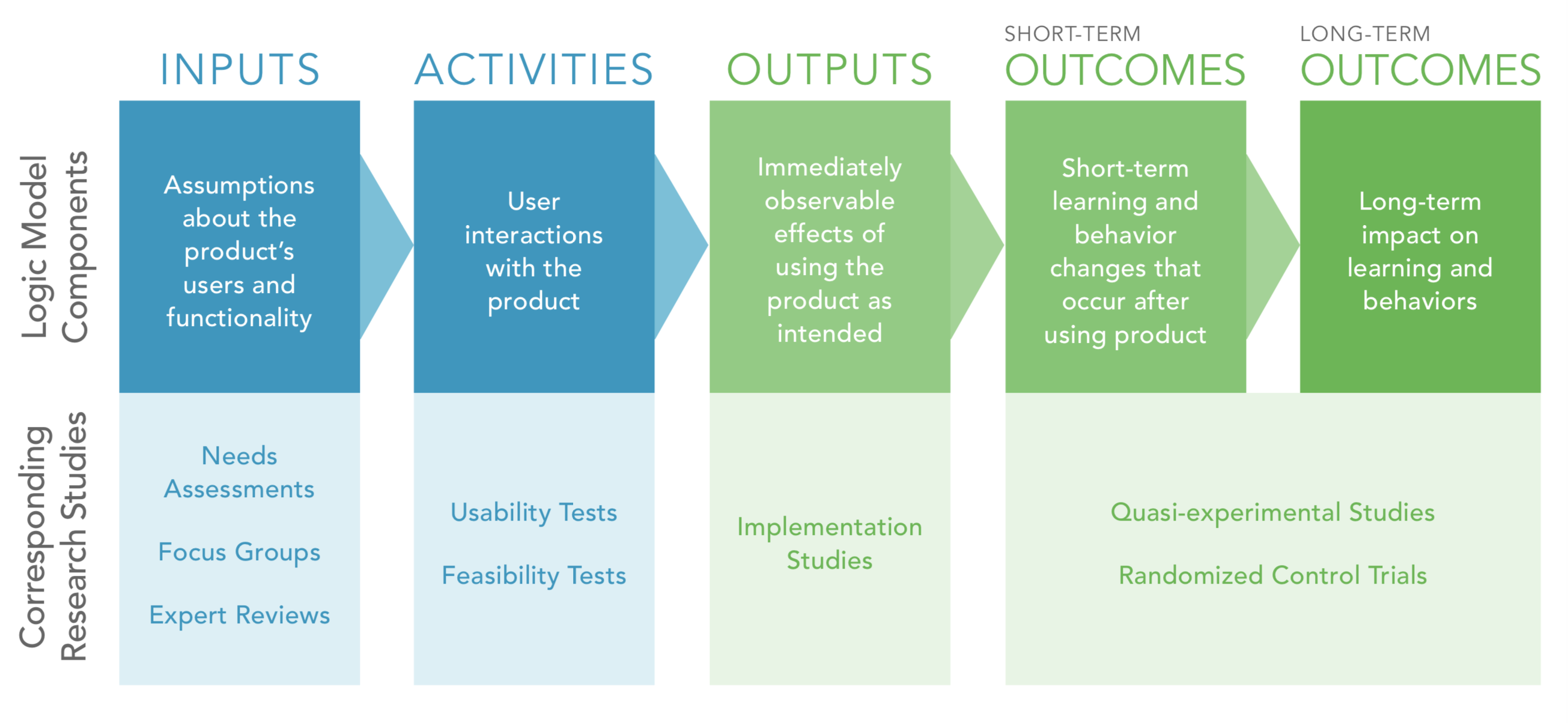What is evidence-based design and why is it important for edtech?
Evidence-based design is about using research findings to inform and drive the creation of edtech products, content, and curricula. This involves reviewing the existing body of evidence, including learning and pedagogical theories, to find connections and possible applications for these learnings.
At WestEd, we employ logic models and literature reviews to structure and guide this process. These outputs provide clients with easily understandable and practical resources that translate and summarize often confusing and complex research literature. When done well, evidence-based design should bring clarity and focus to development and make sure resources are spent on features, functionality, and content with the highest chance of success.
What is a logic model?
One of the biggest challenges when developing an edtech solution is deciding what to build, how, and in what order to best achieve your intended outcomes. It’s easy to get off track and invest in features and functionality that don’t move the needle. Logic models help to avoid this, providing a structured framework that continually re-focuses your efforts on what matters most.
A logic model also provides a useful guiding document for research, since it articulates the problem to be solved, target users, product features, and their implementation — as well as how they all connect — leading to testable hypotheses. Each part of this logic model can be explored through research to help refine and validate your design approach.

Kao, Y., Matlen, B.J., Tiu, M., & Li, L. (2017). Logic models as a framework for iterative user research in educational technology: Illustrative cases. In R.D. Roscoe, S.D. Craig, & S.C. Douglas (Eds.), End-User Considerations in Educational Technology Design. Hershey, PA: IGI Global.
What is a literature review?
Literature reviews offer a comprehensive survey of the research on a subject, topic, or concept of interest relevant to the learning design and target outcomes of an edtech product or curriculum. They’re critical and often ignored aspects of edtech development and the cornerstone of evidence-based design. They make sure that edtech solutions are grounded in, and informed by, the current body of knowledge about learning, as well as previous efforts and their failures and successes. A good literature review can also help focus on what challenges edtech is well-positioned to address. They’re critical for raising capital and, most importantly, make sure design and development focus on learning strategies that best aid students and support teachers. If done well, good literature reviews always provide your team a theoretical framework that serves as the north star from early concepting to scaling and refinement of a tool or curriculum.
